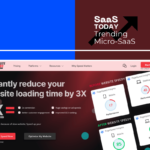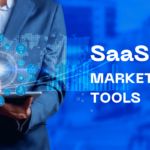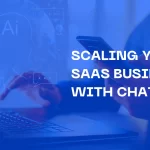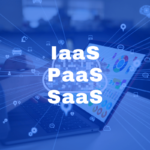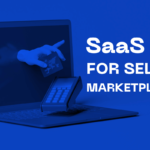What is Micro Saas?
Micro SaaS (Software as a Service) is a term used to describe small, niche software products that are built and delivered on a subscription basis. These products typically cater to specific markets and audiences and are designed to provide targeted solutions to their customers.
Micro SaaS products are often built on top of existing platforms and services, such as Amazon Web Services, Google Cloud Platform, or Shopify, which makes it easier and more cost-effective for entrepreneurs to develop and maintain their products.
Because Micro SaaS products are targeted to specific audiences, they can be highly specialized and tailored to meet the unique needs of their customers. This allows entrepreneurs to differentiate themselves from larger, more established players in the market and attract customers who require more specialized solutions.
Micro SaaS products are typically priced on a subscription basis, which provides a more predictable revenue stream for entrepreneurs and a more flexible pricing model for customers. Customers can often choose from a variety of pricing plans to fit their specific needs and budget.
Overall, Micro SaaS is a growing trend in the software industry, driven by the increasing demand for specialized, targeted software solutions and the availability of low-cost, cloud-based platforms and services.
Benefits of Micro Saas Products
Micro SaaS products offer several benefits to both entrepreneurs and customers. Here are some of the key benefits of Micro SaaS products:
- Low Barrier to Entry: Micro SaaS products require lower upfront investment compared to traditional software products. This means entrepreneurs can start their businesses with less capital and time.
- Easy to Build and Maintain: Micro SaaS products are usually built on existing platforms and services, which makes them quicker and easier to develop and maintain. Entrepreneurs can also focus on building specific features and functionalities to cater to niche audiences.
- Niche Focus: Micro SaaS products often cater to specific niche markets, which makes it easier to identify and target potential customers. This also allows entrepreneurs to focus on delivering targeted solutions to meet the unique needs of their customers.
- Scalable: Micro SaaS products are designed to be scalable, which means they can easily adapt to changes in demand and customer requirements. Entrepreneurs can also leverage cloud-based solutions to scale their products without significant investment in infrastructure.
- Flexibility: Micro SaaS products are often offered on a subscription-based model, which offers customers greater flexibility and convenience. This also allows entrepreneurs to generate recurring revenue and build long-term customer relationships.
- Faster Time-to-Market: Micro SaaS products can be developed and launched quickly, which allows entrepreneurs to respond to market demands and customer needs more rapidly.
Overall, Micro SaaS products offer a range of benefits to both entrepreneurs and customers. These benefits include lower upfront costs, niche focus, scalability, flexibility, and faster time-to-market, which can lead to a more successful and sustainable business.
Micro SaaS Ideas to Start in 2023
Starting a SaaS product in 2023 can be an exciting and lucrative venture, as the demand for cloud-based software solutions is expected to continue to grow. To start a SaaS product, you will need to identify a real problem that your target market faces and offer a solution that they are willing to pay for. It is important to conduct market research and validate your idea before investing time and resources in product development. Once you have a solid concept, you can begin building your product and designing a user-friendly interface. You will also need to develop a marketing strategy to reach potential customers and build brand awareness. As with any business, you will need to stay agile and adapt to changing market conditions and customer needs. With the right idea, strategy, and execution, starting a SaaS product in 2023 can be a rewarding and successful endeavor.
25 Trending Micro SaaS Product Ideas
There are many potential micro SaaS ideas that you could pursue, depending on your interests, skills, and market demand. Here are some ideas to get you started:
- AI content writing and editor tool. It’s on fire and booming like anything.
- AI image designing tool- very helpful for small businesses who want to make a logo, video, social media banner, business card, flyer, mockup and more with AI. Can make good subscription revenue.
- Build AI chatbots (it can be based on API) to simulate human-like conversations with users via chat and answer user questions with instant messages.
- Social media analytics tool for small businesses
- Online appointment booking system for niche industries (e.g., beauty salons, medical practices)
- Virtual event management: Create a platform that helps businesses and organizations plan and execute virtual events, including webinars, conferences, and workshops.
- Customer feedback and survey platform for niche industries (e.g., healthcare, hospitality)
- Task management tool for remote teams with a specific focus (e.g., content creation, software development)
- HR software for small businesses with specific HR needs (e.g., recruiting, performance management)
- Data analytics platform for niche industries (e.g., real estate, finance)
- Project management tool with a specific focus (e.g., construction, marketing)
- Automated invoicing and payment system for freelancers and small businesses
- Online course platform for specific industries (e.g., cooking, photography)
- Virtual event ticketing and registration system for niche industries (e.g., yoga studios, art galleries)
- Email marketing automation platform for specific industries (e.g., e-commerce, education)
- Personal finance management tool for niche audiences (e.g., college students, retirees)
- Digital asset management tool for small businesses with specific needs (e.g., photographers, designers)
- Online appointment scheduling and payment system for therapists and counselors
- Online marketplace platform for niche industries (e.g., vintage clothing, handmade crafts)
- Time-tracking and project management tool for freelancers with specific skills (e.g., writers, designers)
- Customer service and support ticketing system for specific industries (e.g., IT, hospitality)
- Online booking and reservation system for outdoor activities and adventures
- Cloud-based legal practice management software for small law firms
- Resume Builder tool for jobseekers. It is a significant tool that is necessary for youngsters and adults, who’re seeking jobs.
- KPI Tracking tool- Key Performance Indicators (KPI) tool is used to measure the company’s performance and displays the result as charts and tables for easy understanding.
- Analytics software: Develop a platform that helps businesses analyze their data and make informed decisions, with features such as dashboards, reporting, and data visualization.
- Knowledge management software: Build a tool that helps businesses organize and share information, with features such as content creation, knowledge base, and search functionality.
Remember, the key to a successful micro SaaS business is to identify a real problem that your target market faces and offer a solution that they are willing to pay for. So, choose an idea that aligns with your skills and interests and also has a viable market demand.
Micro Saas Success Stories
Carrd.co : from $19 first sale to 1 million in ARR in 3 years
3 years ago, AJ started Carrd with the idea to create a simple site builder. But soon AJ came to the realization that he didn’t intend to create a sophisticated product, prompting a shift in focus. Consequently, the final outcome of his project transformed into a website builder that facilitates the creation of a simple yet effective “online business card.”
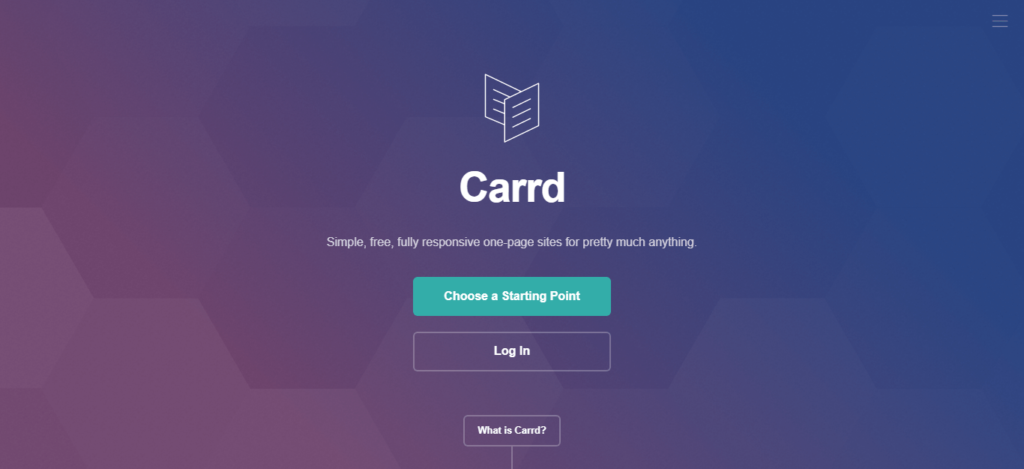
Since my first AMA over 3 years ago, Carrd is now:
- Home to2.5Msites (created by some1.6Musers)
- Earning over$1MARR
- Growing by over10knew sites daily
- Its own company (Carrd Inc)
- Partly VC-funded (pretty sure there will be some questions about this 🙂
- Entirely on AWS (as of earlier this month)
… and basically still just me (on dev/product) and Doni (on operations) — for now 🙂
– AJ posted on IndieHackers






